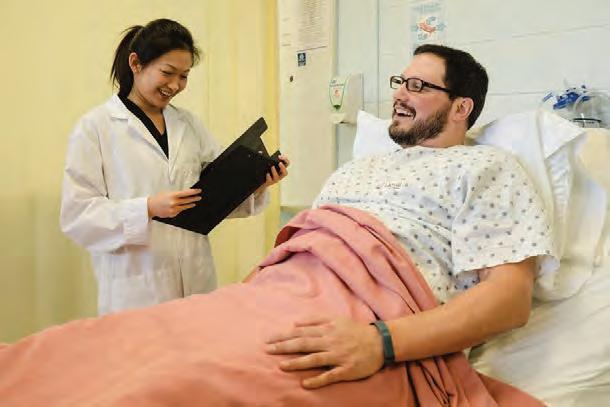
1 minute read
St. Lawrence College will offer nursing credential upgrading courses
St. Lawrence College (SLC) is offering inter nationally educated nurses (IENs) the oppor tunity to upgrade their credentials while con tinuing to work. The new pathways will bolster the province’s healthcare workforce by allowing more nurses to get training to help them advance further in their careers. Courses, labs, and clinical opportunities will be offered on all three of SLC’s campuses in Kingston, Brockville, and Cornwall.
The IEN Competency Upgrade Pathway, which began this past February, provides tuition-free upgrading courses for IENs who want to qualify as registered practical nurses (RPNs) and registered nurses (RNs) in Ontario. The courses address specific educa tional needs and provide an efficient path toward meeting the College of Nurses of Ontario’s (CNO) requirements and are funded through the Ontario government’s Nursing Program Transformation in Ontario’s Colleges initiative. The courses are designed to offer flexible study options for working IENs.
Advertisement
Eligible IENs will meet the following criteria, including:
• Proof of one of the following:
• Canadian citizenship status; or
• Canadian permanent resident status; or
• Appropriate authorization under the Immigration and Refugee Protection Act (Canada) that permits you to engage in the practice of nursing in Ontario.
• A letter from CNO containing the results of your education assessment and the addi- tional education you need.
SLC will also offer new upgrading courses for personal support workers (PSWs) who are interested in becoming registered practical nurses. Students who successfully complete the PSW-to-practical-nursing pathway will be eligible to fast track into a practical nursing program at the college.
“We’re grateful to be able to offer credential upgrading at a time of critical need in our communities for more nursing professionals to be working in our hospitals,” said Glenn Vollebregt, SLC President and CEO. “SLC is highly regarded for educating healthcare professionals, and this is one more way we can be a part of the long-term solution to filling a workforce need.”









